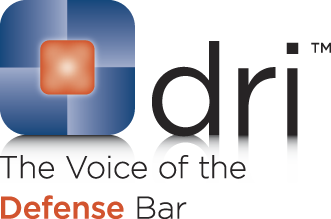Freight brokers have what many insiders consider the gravy job of the transportation industry: Matchmaker. Many brokers have no trucks to maintain and no drivers to qualify. The freight broker’s main duty is to find a trucking company that needs freight on its truck and match it with a customer with freight to move. Voila! Job complete! The customer pays the broker for moving its freight, the broker takes its cut off thetop of the full contract price, commonly 10-20%, then it pays the trucking company (sometimes months) after the run is complete.
But the brokers couldn’t leave well-enough alone. They pushed the envelope by attempting to exert more and more control over the independent contractor motor carriers until they landed in the cross hairs of the plaintiff’s attorneys. If a broker exerts too much control over the motor carrier, the law will convert what has been an independent contract relationship into that of a principal-agent, making the broker vicariously liable for the motor carrier’s negligent acts.
Title 49 U.S.C. §13102(e) defines a freight broker as follows:
(2) Broker. – The term “broker” means a person, other than a motor carrieror an employee or agent of a motor carrier, that as a principal or agent sells, offers for sale, negotiates for, or holds itself out by solicitation, advertisement, or otherwise as selling, providing, or arranging for, transportation by motor carrier for compensation.
What could possibly be the downside to this arrangement? Before you answer that question, you may want to talk to C.H. Robinson Worldwide.
In 2002, C. H. Robinson Worldwide, Inc., a licensed freight broker and FMCSA-authorized motor carrier, brokered a contract between Groff Brothers Trucking and Jasper Products, LLC. to have Groff transport a load for Jasper from Joplin, MO to New Jersey. In the course of the run, Groff’s driver failed to yield the right-of-way at a Maryland intersection causing a serious motor vehicle accident resulting in two deaths and other catastrophic injuries.
In a holding that caught the attention of the entire transportation industry, the Illinois Appellate Court for the Third District affirmed the jury’s finding that C.H Robinson Worldwide had imposed so much control on the motor carrier that the driver had become defacto the agent of the broker. The court upheld the $23.8 million verdict that found broker C.H. Robinson vicariously liable for the negligence of the truck driver.
In affirming the jury’s finding that Robinson was vicariously liable under the doctrine of respondeat superior, the Court carefully examined the relationship between Robinson and Groff. It specifically discussed the nature and amount of control Robinson exerted over Groff regarding the manner in which Groff completed its run. Sperl v. C.H.Robinson Worldwide, Inc. 946 N.E. 2d. 469 (Ill. App. Ct. 2011).
The Robinson court distinguished a principal-agent relationship from that of an independent contractor in terms of the nature and degree of control the principal-broker exerts over its agent-independent contractor. Inherent in the principal-agent relationship is the principal’s right to control the acts of its agent – but this control comes at the price of vicarious liability. As the broker exerts increasing control over the motor carrier, the relationship becomes less consensual thereby destroying the carrier’s status as an independent contractor, exposing the broker to vicarious liability.
The Court found that the demands Robinson imposed upon Groff served to convert the carrier’s status from that of independent contractor to agent. In exerting such a high degree of control over the carrier, Robinson became liable for the carrier’s tortious acts.
A contract can define an independent contractor in as many different ways as the broker or its attorney can imagine. But as C.H. Robinson Worldwide learned, it’s not the language of the contract that controls but how the parties act in the relationship that will determine if this is an independent contract relationship or something else. At a bare minimum, brokers need to consider the following in the wake of the C.H. Robinson Worldwide decision:
1. It’s all about control … or, more specifically, lack thereof: don’t dictate every aspect of the manner in which the trucking company carries out the contract.
2. Don’t hold yourself out as having a partnership with your carrier or imply that the carrier’s insurance will cover a loss where the broker’s limits are insufficient.
3. Verify your carrier’s status and authority with the FMCSA and monitor its CSA2010 rating.
4. Obtain the carrier’s certificate of insurance certificate from the carrier’s insurance company, not the carrier, and verify that this information conforms with SAFER’s insurance information for that carrier.
5. Have a transportation attorney review your contract to mitigate the risks of exposure to liability.
 Follow
Follow Email
Email


